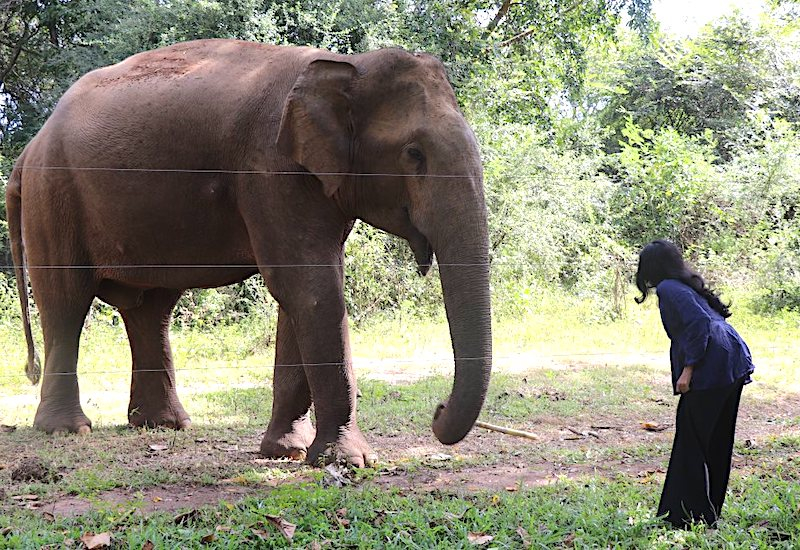
Elephants, associated with cultural and religious values, are seen as sacred animals and cultural symbols; they are also used for economic activities and tourism development.
At a meeting to prepare activities under NPC’s Legal Action Worldwide (LAW) project, participants from Chenkalady and Kebethikollawa expressed serious concerns about increasing loss of human lives because of the human-elephant conflict. “We don’t want any more lives to be lost in vain. We want to protect both humans and elephants,” one participant said.
According to the data in the 2021 Annual Report of the Wildlife & Natural Protection Society in the last 12 years (2021-2010), 1,061 human deaths and 3,298 elephant deaths have been recorded. As a preventative measure for the loss of lives of humans and elephants and property damage, electric fences have been constructed near elephant habitats. However, they are not efficient; elephants break them regularly and intrude on residences and cultivation fields.
Dr. S. Wijeyamohan, a scientist and a senior lecturer at the University of Vavuniya, has introduced new technology for electric fences that is more efficient and cost effective. He was invited to be a resource person at the meeting. Four regional states in India have adopted this technology to deal effectively with the human elephant conflict but Sri Lanka has not yet done so.
“The problem is our mentality. Humans are against elephants’ activities because they are scared by the size of the animals. If we understand the elephants, then there is no conflict between humans and elephants,” Dr. Wijeyamohan said.
The mutual understanding between humans and elephants is important to build a peaceful environment for both without losing the lives of humans or elephants. The discussion showed that the scope of peace was not limited to the absence of war or violence. An environment of peace applied to humans and animals and required nurturing.
